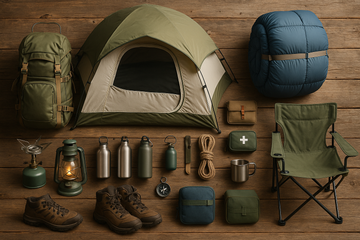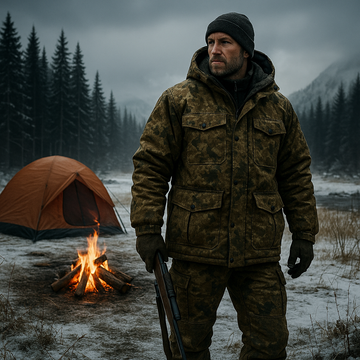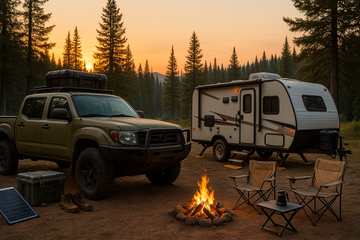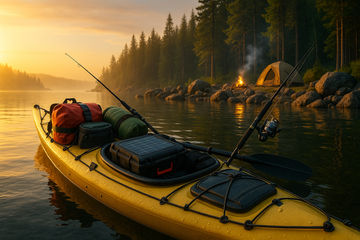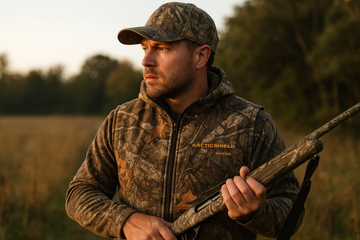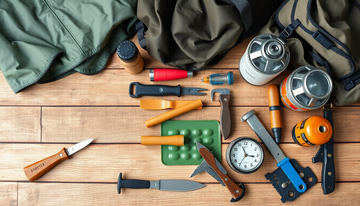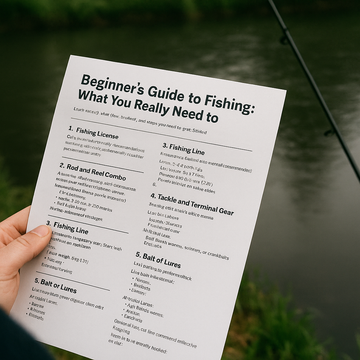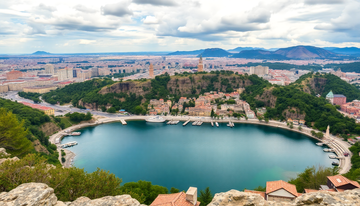Introduction
As we step into 2025, the world continues to face unprecedented challenges, including climate change, economic instability, and global health crises. In these uncertain times, the importance of self-reliance and survival skills has never been more pronounced. The modern survivalist is not only equipped with practical skills but also possesses a mindset that embraces preparedness and adaptability. This article explores a comprehensive set of essential skills that every survivalist should master to thrive in these unpredictable circumstances.
Understanding the Survivalist Mindset
Before diving into specific skills, it’s essential to understand the survivalist mindset. This mindset revolves around being proactive, resourceful, and resilient. Here are some key attributes of a successful survivalist:
- Adaptability: The ability to adjust to changing situations and environments is crucial.
- Resourcefulness: Making use of available resources creatively and effectively can make all the difference.
- Knowledge and Learning: A commitment to continual learning and skill development is vital in preparing for emergencies.
- Community Orientation: Building relationships with like-minded individuals can enhance survival capabilities.
Essential Survival Skills
Survivalism encompasses a wide range of skills that can be categorized into various domains. Here are the fundamental skills every survivalist should master:
1. Food Procurement
Securing food is one of the primary concerns in a survival situation. Understanding various methods of food procurement can help ensure your survival:
- Foraging: Learn to identify edible plants, mushrooms, and berries in your local environment. Resources like field guides or apps can aid in this process.
- Hunting and Fishing: Acquire skills in trapping and fishing to secure protein sources. Taking a hunting course or joining a local fishing club can provide hands-on experience.
- Gardening: Develop the ability to grow your own food, focusing on high-yield crops. Consider learning about permaculture and sustainable gardening practices.
- Food Preservation: Master techniques such as canning, drying, and fermenting to extend the shelf life of food.
2. Water Sourcing and Purification
Water is essential for life, and knowing how to find and purify it is crucial:
- Finding Water: Understand how to locate fresh water sources in the wild, such as streams, rivers, and lakes. Look for signs like animal tracks and vegetation that indicate nearby water.
- Purification Techniques: Master methods such as boiling, filtration, and chemical treatment (using iodine or chlorine) to ensure water safety. Consider carrying a portable water filter as part of your gear.
- Rainwater Harvesting: Learn to collect and store rainwater, which can be a vital resource in survival scenarios.
3. First Aid and Medical Knowledge
In emergencies, having medical knowledge can save lives:
- Basic First Aid: Learn how to treat common injuries and illnesses, such as cuts, burns, and fractures. A first aid course can be incredibly beneficial.
- Advanced Medical Skills: Consider training in CPR, wilderness medicine, and the use of a first aid kit. Familiarize yourself with essential medications and their uses.
- Emergency Response: Understand how to assess injuries and prioritize treatment based on severity. Awareness of shock symptoms and how to respond can be lifesaving.
4. Shelter Building
A safe and secure shelter is vital for protection against the elements:
- Natural Shelters: Know how to utilize available materials to create temporary shelters, such as using branches, leaves, and other natural resources.
- Long-Term Shelter: Understand the principles of constructing a safe, durable shelter for extended stays. Consider learning about different types of shelters, such as lean-tos and debris huts.
- Insulation and Ventilation: Learn how to insulate shelters for warmth and ensure proper ventilation to prevent carbon monoxide buildup, especially when using fires.
5. Fire Making
Fire is a critical resource for warmth, cooking, and signaling:
- Fire Starting Techniques: Familiarize yourself with various methods, including friction, flint and steel, and modern fire starters. Practice these techniques regularly to build confidence.
- Fire Safety: Learn how to manage and extinguish fires safely to prevent disasters. Understand the importance of fire rings and safe distances from flammable materials.
- Using Fire for Cooking: Learn about different cooking methods, such as direct flame grilling and using a reflector oven.
6. Navigation and Signaling
Finding your way in the wilderness is crucial for survival:
- Map Reading and Compass Use: Master the skills of traditional navigation to find your way in unfamiliar territory. Practice reading topographic maps and using a compass.
- Signaling for Help: Know how to use visual and auditory signals to attract attention in emergencies. Techniques include using mirrors, whistles, and ground signals.
- GPS Technology: While traditional skills are essential, familiarity with GPS devices and applications can enhance navigation capabilities.
7. Mental Resilience
Survival situations can be mentally taxing. Cultivating mental resilience is just as important as physical skills:
- Mindfulness Practices: Techniques such as meditation and deep breathing can help manage stress and anxiety.
- Problem-Solving Skills: Develop the ability to think critically and make quick decisions under pressure.
- Building a Support Network: Establish connections with fellow survivalists or community groups that focus on preparedness.
8. Communication Skills
Effective communication can be a key factor in survival, especially when coordinating with others:
- Verbal Communication: Practice clear and concise communication to relay important information quickly.
- Non-Verbal Signals: Learn to use hand signals or visual cues for silent communication, especially in situations where noise could attract unwanted attention.
- Technology Use: Familiarize yourself with communication devices like two-way radios and satellite phones for situations where conventional communication methods fail.
9. Understanding Local Ecosystems
Being knowledgeable about local flora and fauna can aid in survival:
- Animal Behavior: Learn about the habits and habitats of local wildlife, which can inform your hunting and foraging strategies.
- Plant Identification: Understand the various plants in your area, including those that are edible, medicinal, or toxic.
- Seasonal Changes: Know how seasonal changes affect food availability and water sources in your environment.
10. Legal Preparedness and Self-Defense
Understanding the legal aspects of survivalism and self-defense can protect you in uncertain times:
- Legal Rights: Familiarize yourself with local laws regarding self-defense, hunting, and land use.
- Self-Defense Techniques: Consider taking self-defense classes to protect yourself in dangerous situations.
- Conflict Resolution: Develop negotiation skills and strategies for de-escalating potential conflicts.
Conclusion
As we navigate the uncertainties of 2025, becoming a skilled survivalist can provide both peace of mind and practical benefits. By mastering these essential skills, you not only prepare yourself to face potential adversities but also gain a sense of empowerment and confidence in your ability to thrive. Start your journey today and become a resourceful survivalist ready for whatever lies ahead. Embrace the challenge of learning and growing, and remember that the best preparation begins with knowledge and practice.
